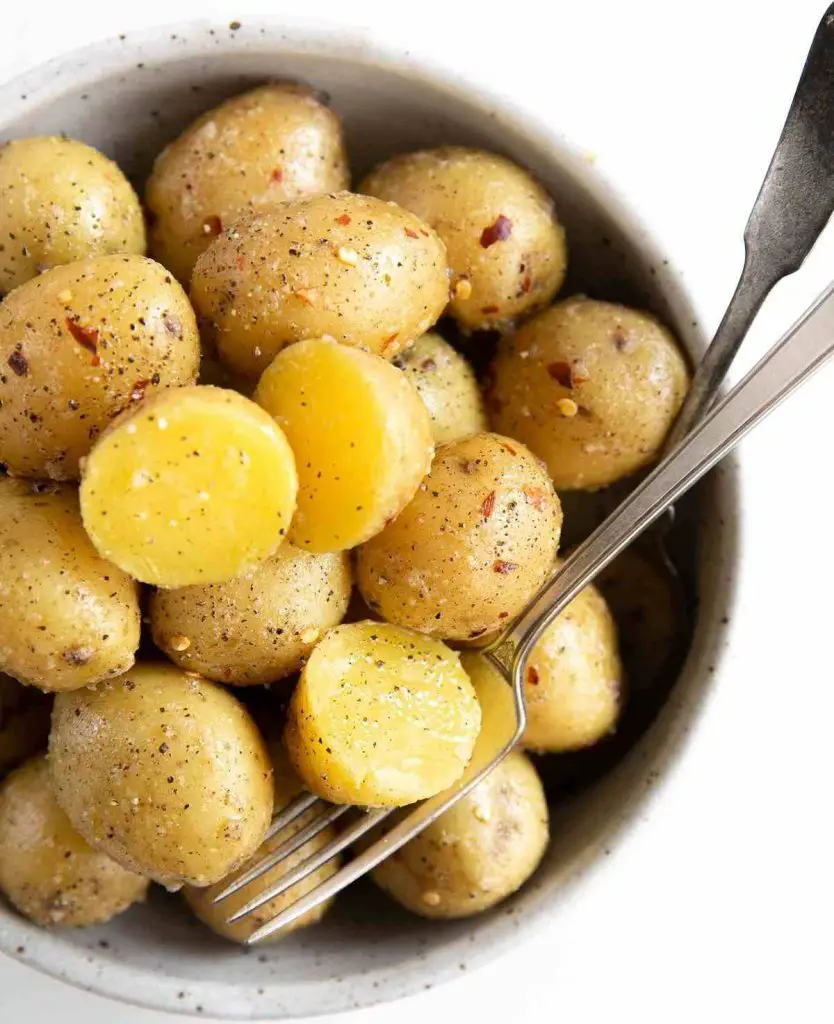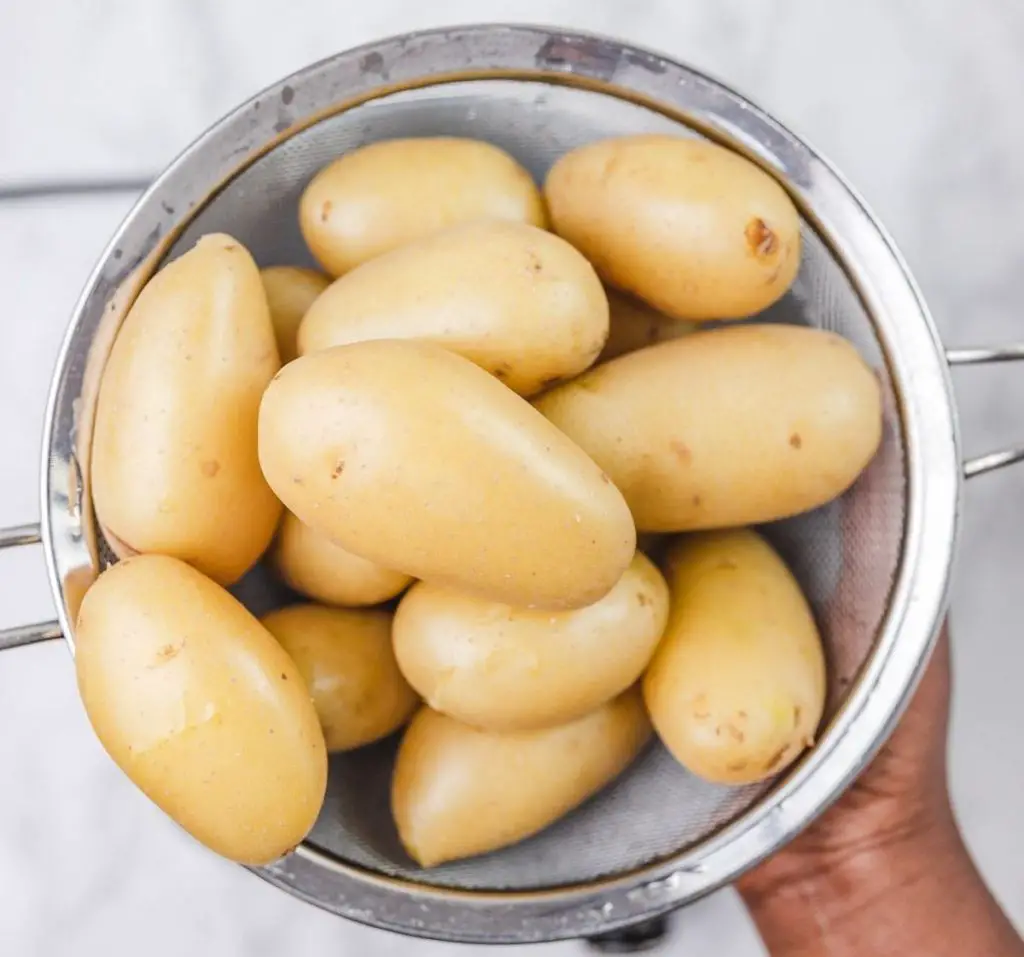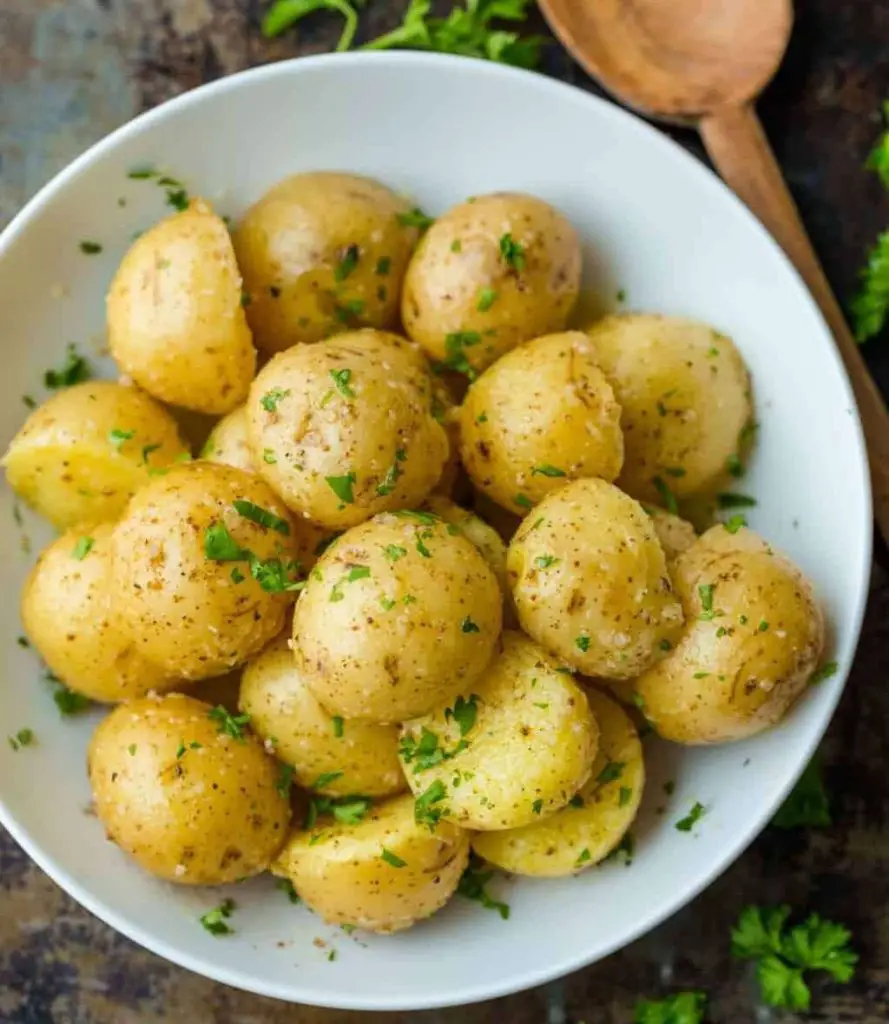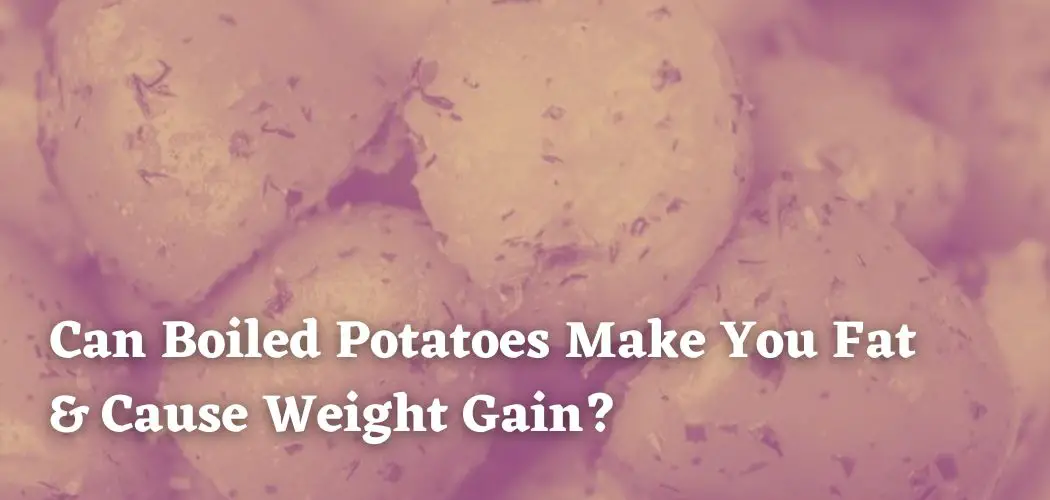Minerals and vitamins are naturally abundant in boiled potatoes, including phosphorus, potassium, vitamin C, and B-complex vitamins. Low in fat and calories, and high in fiber, they make you feel full.
Boiled potatoes are not intrinsically fatty, contrary to common opinion.
Adding sour cream or butter to potatoes significantly increases the number of fat grams and calories, so if you are trying to lose weight, you should season them with low-calorie condiments or herbs.
Contents
Nutritional Information
Large, unpeeled boiling potatoes are rich in B-complex vitamins, which aid in the formation of red blood cells and the production of energy from the carbs, protein, and fat found in the diet.
A boiled potato contains more than 50 percent of the daily value for vitamin B-6, as well as 30 percent of the daily value for niacin and thiamin.

It is also a good source of vitamin C, providing half of your daily requirement. A peeled, boiling potato loses 50% of its vitamin C content and offers 25% of the daily need for vitamin C.
A large, 300-gram potato boiled in its skin contains 6 grams of protein, 261 calories, and three grams of fat if the potato is peeled before boiling, and approximately half a gram of protein is lost, but the fat and calorie values remain unchanged.
Aids In Weight Loss?
Many individuals who are in the process of losing weight wonder if potatoes are beneficial for weight loss. They have one question, which is whether boiled potatoes are beneficial for weight loss. Well, it depends on the method of preparation and the quantity available.
Incredible for weight loss are boiled potatoes. This protein-rich carbohydrate food can be prepared as baked, mashed, or steamed potatoes whenever desired.
Rich In Minerals
Due to the potato’s status as a root vegetable, it has an abundance of important nutrients that help improve nerve and muscle function and develop strong bones.
One-fourth of the daily potassium requirement is met by a large potato boiled in its skin, which has 1.1 grams of potassium. Additionally, it provides approximately one-fifth of your daily phosphorus and magnesium requirements.
Lacks In Some Essential Nutrients
Potatoes are surely a nutrient-rich addition to a healthy diet. However, they cannot satisfy all of your nutritional demands.
They are deficient in two essential nutrients: protein and fat. One medium potato contains only 4 grams of protein and hardly any fat.
Although potatoes are rich in some vitamins and minerals, such as potassium, vitamin C, and iron, they are deficient in others, such as calcium, vitamin A, and some B vitamins.

Since the potato diet is supposed to be followed for about three to five days, nutritional deficiencies are rare.
Nonetheless, if you choose to follow the diet for an extended period of time or frequently, you may be at risk for vitamin deficiencies.
Regain Of Weight
The body may adapt to a very low-calorie diet, such as the potato diet, by slowing its metabolism and consuming fewer calories.
Studies indicate that this slowed metabolism may persist for many years, even after a calorie-restricted diet has been discontinued.
This is known as “adaptive thermogenesis” and can make long-term weight loss extremely challenging. In fact, this is a significant reason why studies estimate that over 80% of dieters eventually regain their former weight.
Health Advantages
Potatoes are an excellent source of fiber, which can aid with weight loss by keeping you full for longer.
Fiber can help prevent cardiovascular disease by regulating cholesterol and blood sugar levels. Potatoes also include anti-inflammatory antioxidants and vitamins that help the body function properly.
Additionally, potatoes have the following health advantages:
Reduce Blood Stress
The skin of baked potatoes is an excellent source of potassium and magnesium. When your diet is deficient in potassium, your body retains excess salt, which raises your blood pressure.
A potassium-rich diet can assist in lowering blood pressure, protecting the heart, and decreasing the risk of stroke.
Prevention From Diseases
Potatoes are loaded with antioxidants—substances that prevent free radicals from causing cell harm. Fruits and vegetables rich in antioxidants reduce the risk of heart disease and cancer.

Leave the potato skins on and use colorful varieties such as purple potatoes to get the most out of potatoes. The more pigmentation a potato possesses, the more antioxidants it contains.
Additionally, potato peel contains up to 12 times more antioxidants than the flesh. So, do not fear eating your potato skins.
Digestive Wellness
Potatoes have a unique type of fiber known as “resistant starch,” which provides the health advantages of both soluble and insoluble fiber while causing less gas than other types of fiber.
You can increase the quantity of resistant starch in potatoes by cooking and chilling them overnight in the refrigerator. Feel free to reheat them prior to consumption.
Similar to soluble fiber, the resistant starch in potatoes functions as a prebiotic – a food source for beneficial bacteria in the large intestine that promotes gut health. It can prevent or treat constipation and irritable bowel syndrome, much like insoluble fiber.
You Might Shed Muscle
Popular fad diets, such as the potato diet, promise quick weight loss. However, muscle loss typically occurs alongside fat loss while dieting, especially when caloric intake is severely lowered.
In one study, 18% of the weight lost by participants on an extremely low-calorie diet consisting of only 500 calories per day was lean body mass.

Those who consumed 1,250 calories per day on a low-calorie diet lost only 8% of their lean body mass.
According to studies, consuming additional protein may help prevent muscle loss during caloric restriction. However, the potato diet is deficient in high-quality protein sources.
Conclusion
The decision to add boiled potatoes to your diet in order to lose weight is totally yours. There is no risk in attempting it, and if it is successful, you should continue using it.
Boiled potatoes are beneficial for weight loss, so start eating them immediately. Nonetheless, it would be best if you consult your nutritionist for advice on the matter.
